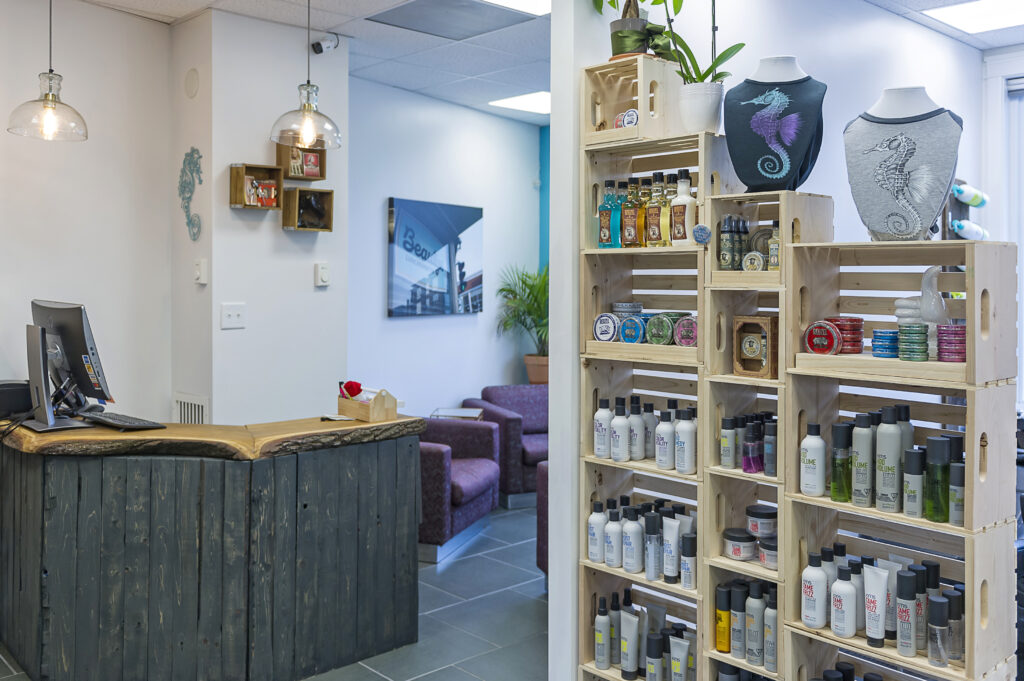
- Business planning and strategy
Getting the Right Insurance for Your Business
The fact that you need to insure your business is a given. But with so many different options available, you may not be sure what type of insurance is right for your particular business – this is a good place to start.
Part of owning your own business means you’re going to be exposed to a certain amount of risk. They don’t have to be large risks, either. Even incidents like a sewer backing up or delivering a defective product can have a huge impact on your day-to-day operations, not to mention your bottom line.
With all of the time, money and effort you’ve invested in starting and building your business, it’s that much more important that you have a plan in place to protect it.
What should you insure?
There are a number of different types of insurance to choose from – it all comes down to what type of business you run, whether or not you have employees, the type of property you have along with a number of other factors. We’ve compiled a few of the most common coverages that business owners should know about and what you can do to help protect your business.
1) Your people (including yourself!)
The success of your business hinges on your ability to work and to ensure that your employees are able to provide the support you need. Insurance can help you in two ways – first, by protecting your business in case a key employee becomes disabled or critically ill. And second, to help attract strong talent and promote loyalty among your team. The coverage you want to look into to protect yourself and your employees include:
- Key person insurance: You may have someone who’s integral to helping you run your company – a “right hand” that, if they were to die or become disabled, it would have a significant impact on your operation. With key person insurance, you would receive a tax-free death benefit that you could use towards expenses and repayment of debts. This coverage can also be used to cover lost revenue while you’re in transition or to pay for the hiring of new talent.
- Buy/sell insurance: This type of insurance will provide you with the funds you need to buy out a business partner should they die prematurely.
- Group benefits: Having a group benefit plan in place not only protects your staff and their families, it can also help you attract, retain and reward good employees.
- Disability insurance: With disability insurance, you and your staff are protected from the possible loss of income should you (or they) become ill or disabled.
- Critical illness insurance: Critical illness coverage comes in the form of a tax-free lump sum payment following the diagnosis of a “Critical Illness”. It is a payment that has no restrictions attached, so it can be used to pay down debts, cover private nursing or home care costs, refit your home or vehicle and so on.
2) Your commercial property.
When you thought of getting insurance for your business, getting coverage for your business property was probably the first thing that came to mind. Here’s what you need to know:
- Commercial property insurance: This coverage protects your building, any equipment you use for your business (including computers and electronics), fixtures and furnishings, and inventory or supplies. It also covers signage, fencing and landscaping. Don’t forget to let your insurance agent/broker know about any additional storage sites or “satellite” office locations.
- Commercial auto insurance: If your company owns vehicles that will be driven by yourself or your staff as part of your day-to-day business, you’ll want to make sure you have commercial auto insurance. If you’re using your own vehicle that’s already covered through your personal auto insurance, you should know that certain liabilities or property losses may not be covered.
- Run your business from a home office? Home insurance may not be enough to protect your business assets. For instance, it won’t cover any business-related equipment so you’ll still need to have additional contents coverage to ensure those items are protected.
3) The possibility of damages to third parties or products
Someone slips and falls on an icy patch while visiting your property. A product you sold to a customer is faulty and causes injury. Or you unintentionally used an already trademarked slogan as part of your new advertising campaign. These are common scenarios that could result in costly lawsuits – all of which can be covered through different forms of liability insurance.
- General liability: Covers injuries to customers, suppliers, employees or visitors to your property. It will also cover you if you (or your staff) are conducting business off-site and cause injury to a third party or their property.
- Product liability: This coverage protects you if a product you manufacture or sell turns out to be defective or if there are inaccuracies in the assembly instructions or warnings.
- Professional liability: If one of your customers claims that you failed to deliver on what was outlined in a contract or that you mismanaged a project, professional liability insurance will cover legal costs and expenses. It would also apply to medical professionals being sued for malpractice.
4) Your bottom line
The reality is, bills don’t stop coming after an event forces your business into shutting down temporarily or when a customer fails to pay their bill. There is, however, insurance coverage available that can protect you from financial loss.
- Business interruption insurance: Let’s say a fire on your property forces you to close your doors until repairs can be made or a new location is found. Or perhaps a key (and very difficult to replace) piece of equipment breaks down, causing you to halt production. Business interruption insurance will reimburse you for any lost net profits and other expenses required to help you carry on with your business until you’re able to get it up and running again.
- Accounts receivable insurance: If your customers default on their payments, accounts receivable insurance can help protect your profit margin and free up your cash flow.
How much insurance should you buy?
The short answer here is – it depends. Just like when you’re deciding on the type of insurance to go with, how much you need depends on what kind of business you have, whether you have employees, etc. A good place to start is to create a detailed list of the assets attached to your business and the dollar value for each. This will at least provide a good foundation for you and your insurance agent/broker to work from. He or she can help you determine how much coverage you need for everything else.
What to look for in an insurer.
- Flexibility
Grocery stores and electricians don’t do the same things, so why should they buy the same insurance? Look for an insurer who is able to customize your policy according to your needs, and can change it quickly when those needs change. - Service
You should expect to receive the same high standard of service that you provide to your own customers. You want an insurer who is quick to respond when you have questions about your policy or need to file a claim, and is available during your work hours. - Reputation
Just because an insurance company’s website says it has a good reputation doesn’t mean it’s true. Talk to other business owners you know and find out which insurers they trust to protect their business. If you belong to an industry association, find out if they have a recommended insurance partner (you might even be eligible for discounts). - Value
You might be bootstrapping as a fledgling entrepreneur or just cost-conscious overall – but you don’t want to be cutting corners when it comes to insurance for your business. Cheap insurance may not give you adequate coverage or offer the flexibility to change your policy as your business grows.
About TruShield:
TruShield Insurance is a proud supporter of Canada’s small business community. We focus on serving Canadian small business owners, entrepreneurs and startups. We provide affordable, flexible, and tailored insurance solutions for small businesses. Visit us online at trushieldinsurance.ca to learn more about our products and request a quote.





